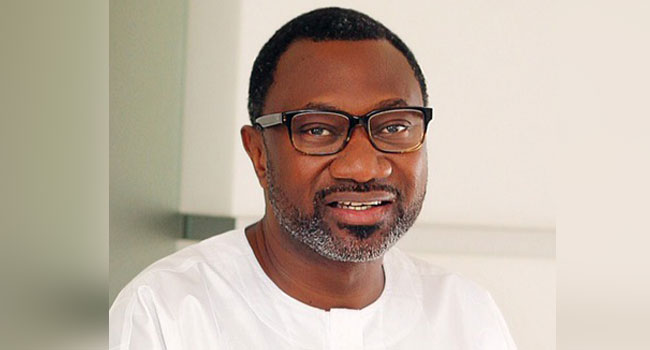Femi Otedola, a prominent Nigerian businessman, has offered his perspective on the ongoing fuel supply dispute between the Dangote Refinery and the Depot and Petroleum Products Marketers Association of Nigeria (DAPPMAN). Otedola congratulated Aliko Dangote on the successful launch of his refinery, hailing it as a pivotal moment for Nigeria’s energy independence and economic progress. He argued that the refinery represents a paradigm shift in the downstream sector, rendering traditional business models obsolete and challenging entrenched interests resistant to change.
Otedola, the founder of DAPPMAN, recounted the association’s origins in 2002. At that time, DAPPMAN aimed to address supply gaps created by an inefficient downstream system. However, the landscape has drastically changed since then. The Dangote Refinery’s local production capabilities have effectively eliminated these gaps, rendering many existing depot assets redundant in the face of a more efficient and reliable local supply chain. He advised depot owners to adapt to the evolving market dynamics or risk becoming irrelevant.
He emphasized the transformative impact of the Dangote Refinery, extending beyond fuel production to revolutionize the entire logistics network. With a fleet of 8,000 new CNG eco-friendly trucks, the refinery ensures efficient and environmentally responsible distribution, contrasting sharply with the outdated practices of some operators. Otedola, drawing on his extensive experience in the industry, asserted that the era of relying on fuel imports, exploiting subsidies, and utilizing outdated infrastructure is rapidly disappearing. He questioned DAPPMAN’s insistence on clinging to a business model that no longer aligns with the current realities of the downstream sector.
Otedola challenged DAPPMAN’s claims regarding employment generation, arguing that depots offer minimal employment opportunities compared to retail outlets like filling stations. He urged DAPPMAN members to shift their focus from preserving outdated assets to investing in last-mile retail operations, aligning their strategies with the evolving market landscape. He highlighted the global trend of refinery operators downsizing their depot networks, converting them into bonded warehouses or exiting the sector altogether, further illustrating the need for DAPPMAN to adapt.
The businessman also praised President Bola Tinubu’s bold move to fully deregulate the downstream petroleum sector, a decision he believes has broken the stronghold of entrenched interests and paved the way for transparency, healthy competition, and improved service delivery. This reform, Otedola emphasized, marks a decisive break from the past practices of rent-seeking, subsidy fraud, and product diversion. He acknowledged that while progress has been made, some voices continue to cling to outdated practices and resist the inevitable shift in the industry.
Finally, Otedola recounted his warnings to former President Goodluck Jonathan about fraudulent practices in the fuel subsidy system, claiming over N2 trillion was siphoned through dubious claims linked to depot licenses. He pointed out that the previous system incentivized rent-seeking and corruption rather than innovation or transparency. Concluding on a lighter note, he congratulated Dangote on his achievement, suggesting he had earned a well-deserved rest. This summarizes Otedola’s view on the changing dynamics of the Nigerian downstream petroleum sector, urging adaptation and innovation in the face of a new era driven by local production and deregulation.














